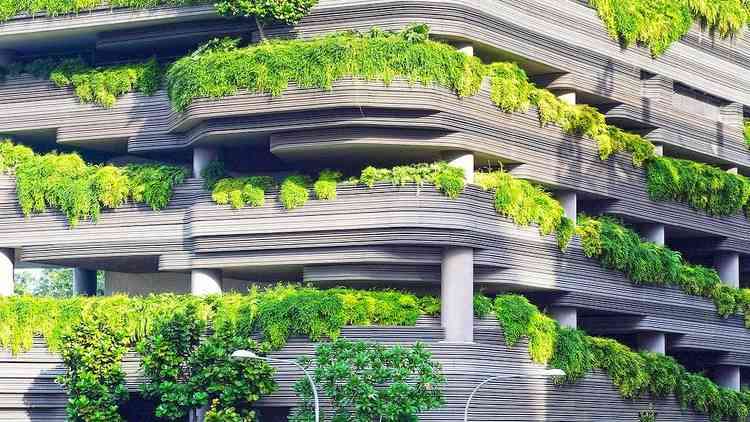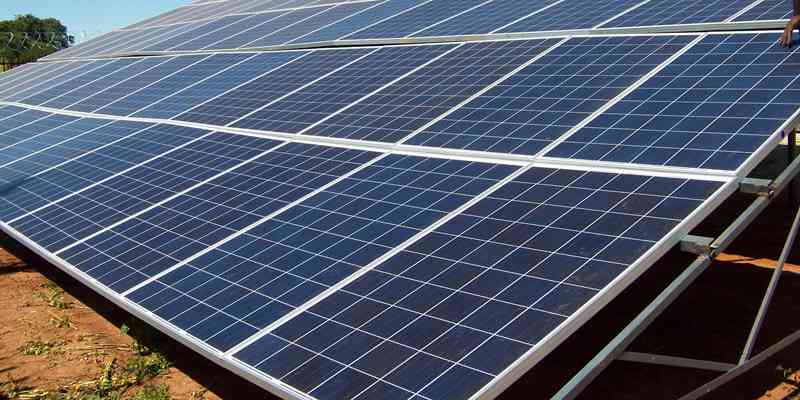
The global discourse surrounding environmental sustainability has intensified recently, prompting significant shifts in various industries worldwide. Real estate is crucial in pursuing sustainability due to its substantial environmental footprint and long-term implications for livelihoods and ecosystems. Building operations account for 30% of global final energy consumption and 26% of global energy-related emissions, with 8% being direct emissions in buildings and 18% indirect emissions from the production of electricity and heat used in buildings.
Green buildings are designed and constructed to be energy-efficient and environmentally friendly throughout their lifecycle. On the other hand, energy efficiency involves using less energy to provide the same level of comfort, functionality, and productivity in buildings. Therefore, the nexus between green buildings and energy efficiency is significant and fundamental to socio-economic development and environmental conservation.
Green building practices hold immense potential for creating a new economy, fostering economic growth, and mitigating environmental degradation. These practices include energy efficiency, water conservation, waste reduction, use of sustainable materials, and implementation of renewable energy sources.
Today’s article focuses on energy efficiency, which significantly impacts the national economy and is a cornerstone of sustainable development. It offers many economic benefits that extend far beyond mere cost savings. It further explores the intricate interplay between energy efficiency and the national economy, delineating how it catalyses job creation, fosters innovation, enhances competitiveness, and fortifies environmental stewardship.
Energy efficiency initiatives constitute a linchpin in the quest for economic resilience. By optimising energy consumption patterns, businesses, households, and governmental entities can unlock substantial cost savings. Reduced energy expenditures translate into surplus capital that can be reinvested across diverse sectors, amplifying economic dynamism. Moreover, diminished operational costs bolster profit margins, rendering businesses more competitive in domestic and international markets.
The proliferation of energy efficiency measures spawns many employment opportunities across various industries. Initiatives such as retrofitting buildings, upgrading infrastructure, and deploying renewable energy technologies necessitate a skilled labour force, fostering job creation in construction, manufacturing, engineering, and other ancillary sectors. This influx of employment mitigates unemployment rates and invigorates local economies, catalysing sustainable growth trajectories.
Energy efficiency constitutes a potent catalyst for economic expansion, propelling demand for energy-efficient products and services. This burgeoning demand stimulates innovation and entrepreneurship, spurring the development of cutting-edge technologies and business models. Consequently, nations can augment their industrial competitiveness while fostering a conducive ecosystem for sustainable growth. Furthermore, the proliferation of energy efficiency initiatives nurtures a culture of resource optimisation, thereby ingraining principles of fiscal prudence within the economic fabric.
By curtailing energy consumption and bolstering domestic production, energy efficiency initiatives diminish reliance on imported energy sources, thereby fortifying energy security. Nations endowed with abundant renewable resources can harness the potential of energy efficiency to reduce their carbon footprint while concurrently mitigating vulnerabilities associated with global energy markets. This transition towards energy autonomy insulates economies against geopolitical uncertainties, ensuring a stable and resilient energy landscape.
- COP27: Zimbabwe’s opportunity to shine
- Is Zimbabwe ready for green building standards?
- Addressing climate change the green building way
- Senegal-Egypt rematch on the cards?
Keep Reading
Energy efficiency initiatives engender a virtuous cycle of environmental stewardship by curbing greenhouse gas emissions, mitigating air pollution, and conserving natural resources. Furthermore, the concomitant improvements in air quality confer substantial health benefits, thereby alleviating the burden on healthcare systems and enhancing overall societal well-being.
Energy-efficient infrastructure stands as a bulwark against the vagaries of climate change and natural disasters, bolstering societal resilience in the face of adversity. Buildings fortified with energy-efficient designs exhibit heightened resilience to extreme weather events, thereby minimising property damage and preserving livelihoods. Similarly, transportation systems equipped with energy-efficient technologies mitigate congestion and enhance mobility, fostering economic continuity amidst disruptions in energy supply.
The embrace of energy efficiency catalyses a renaissance of innovation, propelling advancements in clean energy technologies, innovative grid systems, and sustainable practices. Nations at the vanguard of energy efficiency innovation carve a niche in the global marketplace, positioning themselves as pioneers in the transition towards a low-carbon economy. This technological leadership augments industrial competitiveness and fosters cross-sectoral collaboration, fostering synergies that propel sustainable development agendas.
Energy efficiency emerges as a linchpin of economic prosperity, offering a panacea for myriad socio-economic challenges. By harnessing the multifaceted benefits of energy efficiency, Zimbabwe can foster sustainable growth trajectories, enhance societal well-being, and fortify its resilience in the face of global uncertainties. As we navigate the complexities of the 21st century, prioritising energy efficiency is imperative, forging a path towards a more equitable, prosperous, and sustainable future for future generations.
We can reap these economic benefits by prioritising energy efficiency measures and policies while contributing to a more sustainable and prosperous future. In Zimbabwe, where financial challenges and environmental vulnerabilities intersect, leveraging economic incentives for green building can be pivotal in driving sustainable development.
*Dr. Mike E Juru is the Chairperson of Green Building Council of Zimbabwe









